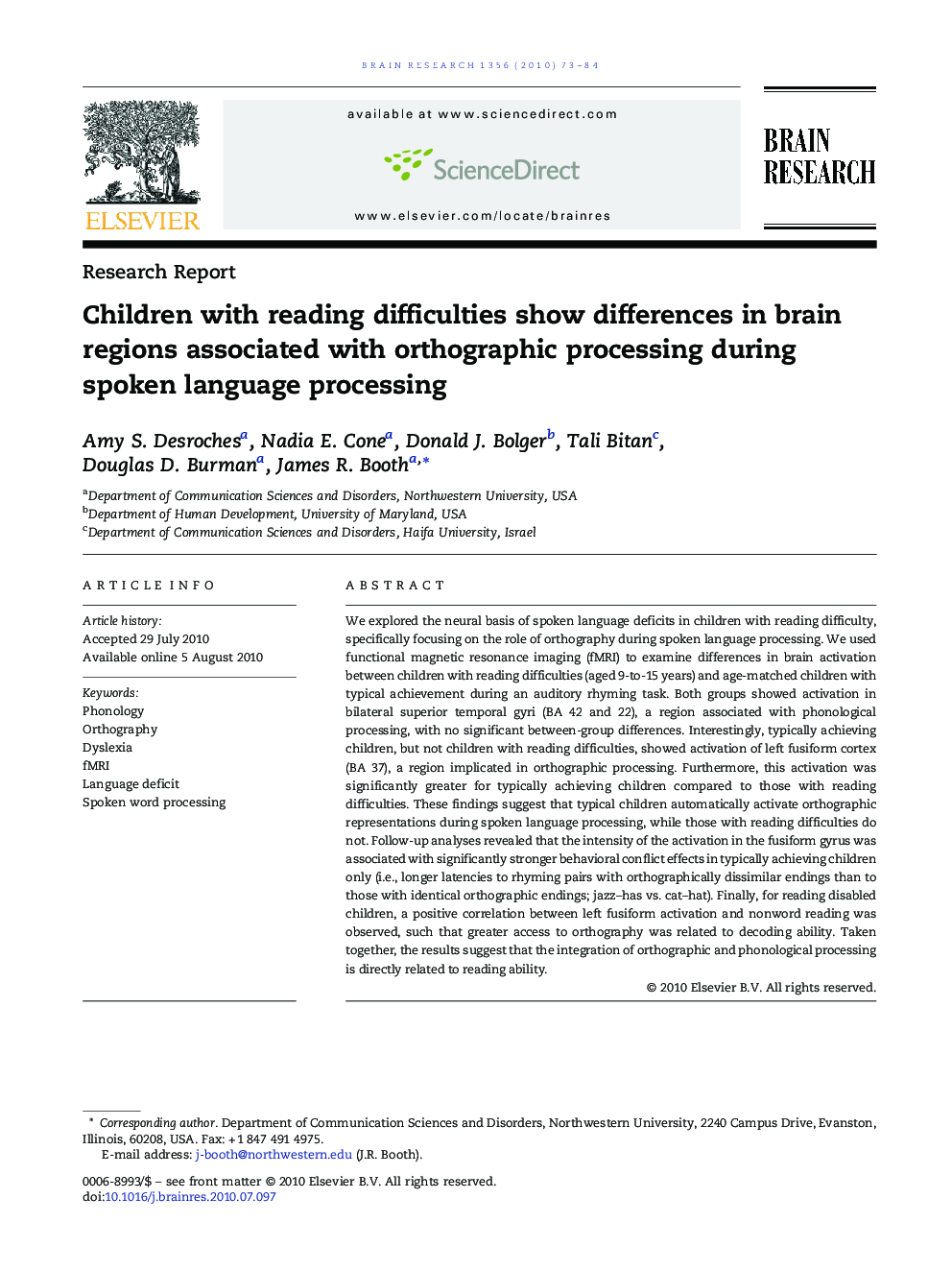| Article ID | Journal | Published Year | Pages | File Type |
|---|---|---|---|---|
| 4326435 | Brain Research | 2010 | 12 Pages |
We explored the neural basis of spoken language deficits in children with reading difficulty, specifically focusing on the role of orthography during spoken language processing. We used functional magnetic resonance imaging (fMRI) to examine differences in brain activation between children with reading difficulties (aged 9-to-15 years) and age-matched children with typical achievement during an auditory rhyming task. Both groups showed activation in bilateral superior temporal gyri (BA 42 and 22), a region associated with phonological processing, with no significant between-group differences. Interestingly, typically achieving children, but not children with reading difficulties, showed activation of left fusiform cortex (BA 37), a region implicated in orthographic processing. Furthermore, this activation was significantly greater for typically achieving children compared to those with reading difficulties. These findings suggest that typical children automatically activate orthographic representations during spoken language processing, while those with reading difficulties do not. Follow-up analyses revealed that the intensity of the activation in the fusiform gyrus was associated with significantly stronger behavioral conflict effects in typically achieving children only (i.e., longer latencies to rhyming pairs with orthographically dissimilar endings than to those with identical orthographic endings; jazz–has vs. cat–hat). Finally, for reading disabled children, a positive correlation between left fusiform activation and nonword reading was observed, such that greater access to orthography was related to decoding ability. Taken together, the results suggest that the integration of orthographic and phonological processing is directly related to reading ability.
Research Highlights►Differences in brain activity between typically developing children and those with dyslexia were explored during an auditory rhyming task. ►Children with dyslexia, unlike those with typical reading achievement, showed no influence of orthographic information during this auditory task, marked by activity in the fusiform gyrus for typical children, but not those with dyslexia. ►The results suggest that the integration of orthographic and phonological processing is directly related to reading ability.
